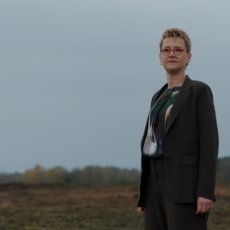- Home
- About us
- People
- Mirella Klomp
- Research
Prof. dr. Mirella Klomp
Research projects
Food in times of crisis (2020)
Before the Covid-19 crisis, churches organized many activities in De Nieuwe Stad in Amsterdam Zuidoost, including serving free meals for everyone who wanted them. When this was no longer possible because of the Covid-19 measures, the international church, Treasures International Ministries, and Diaconie Evangelisch Lutherse Gemeente Amsterdam decided to work together and start delivering meals to people’s houses. Some of these recipients were enlisted through the network of one of the churches, but most were enlisted by care organizations. As one, relatively small project, operating alongside other aid initiatives, the meals project soon
received many more enlistments than anticipated, and the Covid-19 crisis lasted longer than expected, which raised questions regarding the underlying needs and how to proceed in the long term. Together with the Protestant Theological University, they decided to research the question:How does the meals project of Treasures and Lutherse Diaconie expose structural needs in Amsterdam Zuidoost, and how can these needs be addressed in a sustainable manner?
The research is composed of two parts. For the first part,
a participatory action research study was conducted, in
which two researchers were actively involved in the meals project and aimed to explore possible answers to the research question together with a group of co-researchers: experts from the field. The second part concerns a research study on the views of different stakeholders, based on interviews.The study concludes that as a result of the meals project 1. people receive food aid who would lack food otherwise; 2. people involved are empowered and lead more meaningful lives; 3. structural need and injustice becomes visible; and 4. the unique role of churches, the importance of their social capital and network of relationships in Amsterdam Zuidoost, becomes apparent.
The study recommends stakeholders in this project as well as in the broader field – funds, diaconal organizations, the government, care organizations and organizations of social welfare – 1. to get around the table and continue or start the dialogue on signals of social needs coming from these emergency aid projects; 2. to make sure that emergency aid projects are accompanied by an independent advisory board from the onset, to help projects with the reflection they long for; 3. to cooperate in structurally collecting signals about existing needs.
Passio resurrexit (2010/2013-2020)
The passion in contemporary culture is revitalized. In our time, composers, musicians, producers and broadcasting companies are the ones who bring the major themes of this large musical form back on the agenda. The passion is alive in concert halls and on the city squares. This project deals with the paradox that today in a still secularizing country like the Netherlands rituals on the suffering and death of Jesus Christ can be so popular.
I started my research on contemporary Passions in 2010, in the project 'Religion? Music!' when working as a postdoc researcher at Tilburg School of Humanities. In 2013 I continued the research in a project that has a more theological focus. Soon, this will be completed by a monograph on the transfer and transformation of religion, that uses a single case: the multi-media event called "The Passion". This book showcases new ways to perform practical theology "after the death of God".
The Sound of Worship (2006-2008)
Every Sunday afternoon, a cacophony of sounds spreads over the Southeast part of Amsterdam. In churches, car parks, and school buildings, some hundred Christian congregations gather for worship. The performance of worship in these churches brings forth various sounds, which are often not only heard inside, but also outside the buildings. These sounds vary from audible silence and the singing of Geneva psalms in the local protestant congregation, to the upbeat sounds of praise, melodious preaching and rhythmic handclapping in one of the many immigrant churches.
The sound of worship is tightly bound up with the culture of its performers. Liturgical practice thus clearly expresses the identity of the people who perform liturgy, which is materially, culturally and contextually influenced. In her study, I investigated the sound of worship in a Surinamese Lutheran Congregation and a Ghanaian Methodist Church from a cultural-anthropological viewpoint, tried to find out which meanings churchgoers attributed to it and determined the qualities of these sounds. I theologically related these qualities, considered as sacramental shapes, to an incarnational understanding of worship, departing from the idea that, when the physical performance of ritual shapes embody the faith of the performer, forms in which the living Christ – who physically took shape in our reality – may be encountered, are created.
The dissertation following from this research project was defended in 2009 and published as Mirella Klomp, The Sound of Worship. Liturgical Performance by Surinamese Lutherans and Ghanaian Methodists in Amsterdam (= Liturgia Condenda 26), Leuven: Peeters 2011.

